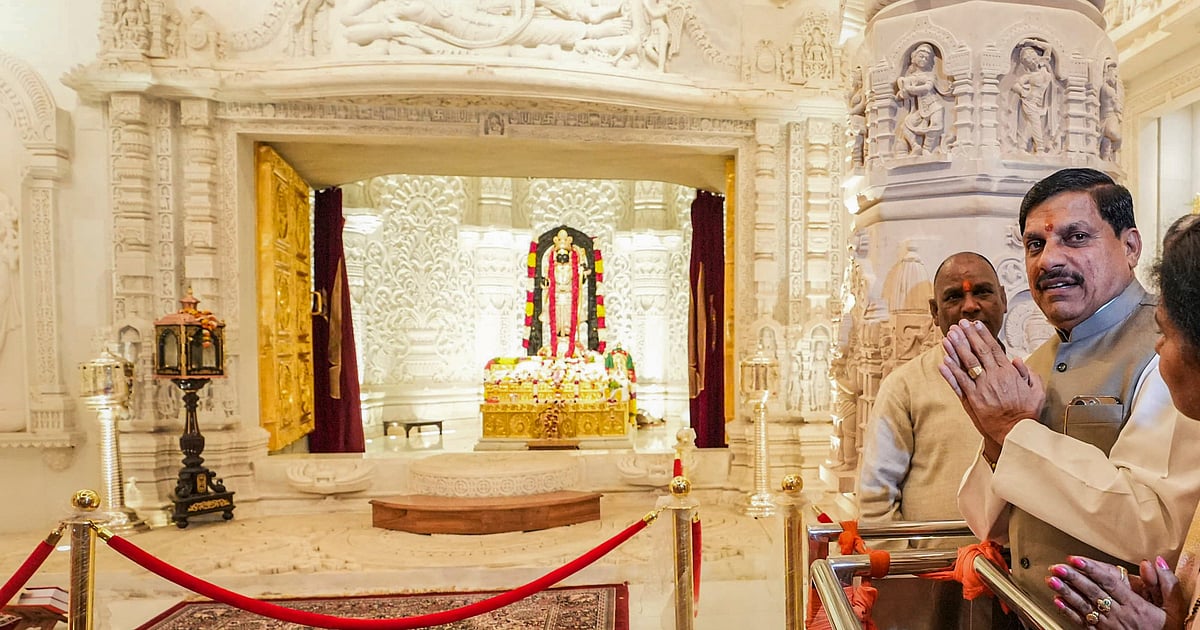 |
|
The recent consecration of the Ram temple has sparked controversy, with Madhya Pradesh Chief Minister Mohan Yadav demanding an apology from Rahul Gandhi for what he perceives as insulting remarks directed towards Hindus. The controversy stems from Gandhi's alleged statements regarding the temple, which Yadav considers to be deeply offensive to the religious sentiments of the Hindu community. In a strongly worded statement, Yadav highlighted the importance of respecting public beliefs and the sanctity of religious figures, stating that any attempt to undermine or belittle these sentiments is unacceptable.
Yadav's demand for an apology underscores the sensitivity surrounding religious matters and the potential for political discourse to escalate into religious tensions. The Ram temple holds immense religious significance for Hindus, and any perceived disrespect towards it is likely to be met with strong reactions from the community. The situation raises concerns about the potential for religious polarization and the need for political leaders to exercise caution when addressing sensitive religious issues.
The incident also sheds light on the growing influence of religious sentiments in Indian politics. Political parties often appeal to religious sentiments to mobilize voters and strengthen their base. This trend can create a climate of religious intolerance and hinder open and inclusive dialogue. It is crucial for political leaders to prioritize unity and understanding while respecting the diversity of beliefs within the Indian society. The need for a more nuanced approach to religious matters is becoming increasingly apparent, especially in the context of sensitive issues like the Ram temple controversy.
